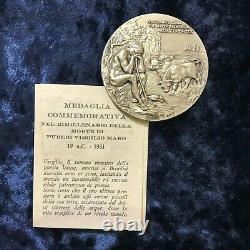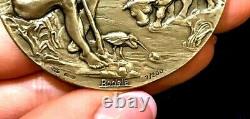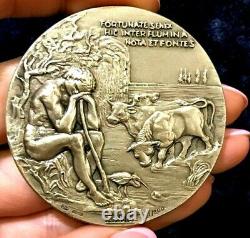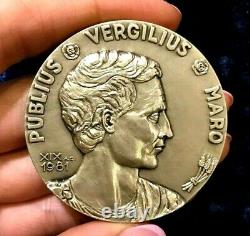
- Poems Poetry Art
- Edition
- Features
- 1st Edition (34)
- Antique (4)
- Canvas (5)
- Dust Jacket (23)
- Embossed (4)
- Framed (124)
- Framed Poster (9)
- Framed, Matted (4)
- Hardcover (5)
- Illustrated (63)
- Limited Edition (29)
- Matted (17)
- New Edition (4)
- Numbered (17)
- One Of A Kind (ooak) (24)
- Personalized (4)
- Signed (176)
- Unframed (4)
- Vintage (8)
- Vintage Paperback (6)
- ... (2887)
- Format
- Board Book (2)
- Books (3)
- Box Set (2)
- Broadside (2)
- Chapbook / Pamphlet (9)
- Cover Rigid (3)
- Hard Cover (2)
- Hardback (10)
- Hardcover (501)
- Leather (6)
- Library Binding (2)
- Mixed Lot (6)
- Paperback (101)
- Paperback / Softback (4)
- Perfect (8)
- Physical (6)
- Record (2)
- Softcover (13)
- Trade Paperback (122)
- Unknown (8)
- ... (2639)
- Language
- Arabic (3)
- Czech & English (11)
- Dutch (5)
- Eng, Gec (3)
- English (1340)
- English, Japanese (3)
- English, Persian (3)
- English, Russian (9)
- French (43)
- Germ, German (4)
- German (45)
- German, Germ (13)
- Hebrew (3)
- Italian (11)
- Japanese (18)
- Latin (11)
- Persian (7)
- Portuguese (3)
- Russian (19)
- Spanish (13)
- ... (1884)
- Publisher
- Abrams, Inc. (12)
- Bernard Lintott (6)
- Broadside Press (10)
- De Selliers, Diane (10)
- E. Little & Co (8)
- George Olms (17)
- Gotham Press (9)
- Hard Press (15)
- Harpercollins (7)
- J.b. Metzlersche (17)
- Museum Of Modern Art (9)
- Nimbus Publishing (7)
- Pré Nian Editions (6)
- Rizzoli (9)
- Samuel French (7)
- Sore Dover Press (7)
- Ten Crow Press (6)
- Thames & Hudson (6)
- Unknown (11)
- X-ray Book Company (6)
- ... (3266)
- Type
Ancient Rome Nude Virgil Poetry Italian Limited 7/200 Silver 925 Art medal






83gr 925 silver , 65mm, 7/200 limited with original case. Publius Vergilius Maro 15 October, 70 BC Near Mantua.
21 September, 19 BC (age 50) Brundisium. Traditional dates 15 October, 70 BC 21 September, 19 BC. , usually called Virgil or Vergil. In English, was an ancient Roman.
Poet of the Augustan period. He wrote three of the most famous poems in Latin literature. A number of minor poems, collected in the Appendix Vergiliana. Are sometimes attributed to him.
Virgil is traditionally ranked as one of Rome's greatest poets. His Aeneid has been considered the national epic. Of ancient Rome since the time of its composition. The Aeneid follows the Trojan refugee.
As he struggles to fulfill his destiny and reach Italy, where his descendants Romulus and Remus. Were to found the city of Rome. Virgil's work has had wide and deep influence on Western literature. In which Virgil appears as Dante's guide through Hell. Virgil's death and editing of the Aeneid. Late antiquity and Middle Ages. Virgil's biographical tradition is thought to depend on a lost biography by Varius.Virgil's editor, which was incorporated into the biography by Suetonius. And the commentaries of Servius.
The two great commentators on Virgil's poetry. Although the commentaries no doubt record much factual information about Virgil, some of their evidence can be shown to rely on inferences made from his poetry and allegorizing; thus, Virgil's biographical tradition remains problematic. The tradition holds that Virgil was born in the village of Andes. Analysis of his name has led to beliefs that he descended from earlier Roman colonists. Modern speculation ultimately is not supported by narrative evidence either from his own writings or his later biographers.Says that Virgil's father was of a humble background; however, scholars generally believe that Virgil was from an equestrian. Landowning family which could afford to give him an education. He attended schools in Cremona. After considering briefly a career in rhetoric. And law, the young Virgil turned his talents to poetry.
According to Robert Seymour Conway. The only ancient source which reports the actual distance between Andes and Mantua is a surviving fragment from the works of Marcus Valerius Probus. Probus flourished during the reign of Nero. Probus reports that Andes was located 30 Roman miles.
Conway translated this to a distance of about 45 kilometres. Relatively little is known about the family of Virgil.His father reportedly belonged to gens. Vergilia, and his mother belonged to gens Magia. According to Conway, gens Vergilia is poorly attested in inscriptions from the entire Northern Italy. Among thousands of surviving ancient inscriptions from this region, there are only 8 or 9 mentions of individuals called "Vergilius" (masculine) or "Vergilia" (feminine).
Out of these mentions, three appear in inscriptions from Verona. And one in an inscription from Calvisano. Conway theorized that the inscription from Calvisano had to do with a kinswoman of Virgil. Calvisano is located 30 Roman miles from Mantua, and would fit with Probus' description of Andes. The inscription in this case is a votive offering.
(a group of deities) by a woman called Vergilia, asking the goddesses to deliver from danger another woman, called Munatia. Conway notes that the offering belongs to a common type for this era, where women made requests for deities to preserve the lives of female loved ones who were pregnant and were about to give birth.In most cases, the woman making the request was the mother of a woman who was pregnant or otherwise in danger. Though there is another inscription from Calvisano, where a woman asks the deities to preserve the life of her sister. Munatia, the woman who Vergilia wished to protect, was likely a close relative of Vergilia or Vergilia's daughter.
The name "Munatia" indicates that this woman was a member of gens Munatia. And makes it likely that Vergilia married into this family.According to the commentators, Virgil received his first education when he was five years old and he later went to Cremona. Which he soon abandoned for philosophy.
From Virgil's admiring references to the neoteric. It has been inferred that he was, for a time, associated with Catullus. According to Servius, schoolmates considered Virgil extremely shy and reserved, and he was nicknamed "Parthenias" or "maiden" because of his social aloofness.
Virgil also seems to have suffered bad health throughout his life and in some ways lived the life of an invalid. He began to write poetry while in the Epicurean. School of Siro the Epicurean.
A group of small works attributed to the youthful Virgil by the commentators survive collected under the title Appendix Vergiliana. But are largely considered spurious by scholars. One, the Catalepton , consists of fourteen short poems. Some of which may be Virgil's, and another, a short narrative poem titled the Culex.("The Gnat"), was attributed to Virgil as early as the 1st century AD. Page from the beginning of the Eclogues in the 5th-century Vergilius Romanus. The biographical tradition asserts that Virgil began the hexameter Eclogues. (or Bucolics) in 42 BC and it is thought that the collection was published around 3938 BC, although this is controversial. The Eclogues (from the Greek for "selections") are a group of ten poems roughly modeled on the bucolic hexameter poetry ("pastoral poetry") of the Hellenistic poet Theocritus.
After his victory in the Battle of Philippi. In 42 BC, fought against the army led by the assassins of Julius Caesar. Tried to pay off his veterans with land expropriated from towns in northern Italy. Supposedly including, according to the tradition, an estate near Mantua belonging to Virgil.
The loss of his family farm and the attempt through poetic petitions to regain his property have traditionally been seen as Virgil's motives in the composition of the Eclogues. This is now thought to be an unsupported inference from interpretations of the Eclogues. In Eclogues 1 and 9, Virgil indeed dramatizes the contrasting feelings caused by the brutality of the land expropriations through pastoral idiom, but offers no indisputable evidence of the supposed biographic incident.
While some readers have identified the poet himself with various characters and their vicissitudes, whether gratitude by an old rustic to a new god Ecl. 1, frustrated love by a rustic singer for a distant boy his master's pet, Ecl. 2, or a master singer's claim to have composed several eclogues Ecl.
5, modern scholars largely reject such efforts to garner biographical details from works of fiction, preferring to interpret an author's characters and themes as illustrations of contemporary life and thought. The ten Eclogues present traditional pastoral themes with a fresh perspective. Eclogues 1 and 9 address the land confiscations and their effects on the Italian countryside. 2 and 3 are pastoral and erotic, discussing both homosexual love Ecl. 2 and attraction toward people of any gender Ecl.
The so-called "Messianic Eclogue" uses the imagery of the golden age in connection with the birth of a child (who the child was meant to be has been subject to debate). 5 and 8 describe the myth of Daphnis. In a song contest, 6, the cosmic and mythological song of Silenus. 7, a heated poetic contest, and 10 the sufferings of the contemporary elegiac poet Cornelius Gallus. In the Eclogues with establishing Arcadia.As a poetic ideal that still resonates in Western literature and visual arts and setting the stage for the development of Latin pastoral by Calpurnius Siculus. Sometime after the publication of the Eclogues (probably before 37 BC).
Virgil became part of the circle of Maecenas. Octavian's capable agent d'affaires who sought to counter sympathy for Antony among the leading families by rallying Roman literary figures to Octavian's side. Virgil came to know many of the other leading literary figures of the time, including Horace.In whose poetry he is often mentioned. Who later helped finish the Aeneid. Late 17th-century illustration of a passage from the Georgics by Jerzy Siemiginowski-Eleuter. At Maecenas' insistence (according to the tradition) Virgil spent the ensuing years (perhaps 3729 BC) on the long didactic hexameter poem called the Georgics.
(from Greek, "On Working the Earth") which he dedicated to Maecenas. The ostensible theme of the Georgics is instruction in the methods of running a farm. ("how to") tradition of the Greek poet Hesiod. And several works of the later Hellenistic poets.
The four books of the Georgics focus respectively on raising crops and trees (1 and 2), livestock and horses (3), and beekeeping and the qualities of bees (4). Well-known passages include the beloved Laus Italiae of Book 2, the prologue description of the temple in Book 3, and the description of the plague at the end of Book 3.
Book 4 concludes with a long mythological narrative, in the form of an epyllion. Which describes vividly the discovery of beekeeping by Aristaeus. And the story of Orpheus. Ancient scholars, such as Servius, conjectured that the Aristaeus episode replaced, at the emperor's request, a long section in praise of Virgil's friend, the poet Gallus, who was disgraced by Augustus.And who committed suicide in 26 BC. Tone wavers between optimism and pessimism, sparking critical debate on the poet's intentions. But the work lays the foundations for later didactic poetry.
Virgil and Maecenas are said to have taken turns reading the Georgics to Octavian upon his return from defeating Antony and Cleopatra. At the Battle of Actium. A 1st-century terracotta expressing the pietas.
Of Aeneas, who carries his aged father and leads his young son. The Aeneid is widely considered Virgil's finest work and one of the most important poems in the history of Western literature. Virgil worked on the Aeneid during the last eleven years of his life (2919 BC), commissioned, according to Propertius. The epic poem consists of 12 books in dactylic hexameter. Verse which describe the journey of Aeneas.
A warrior fleeing the sack of Troy, to Italy, his battle with the Italian prince Turnus, and the foundation of a city from which Rome would emerge. The Aeneid's first six books describe the journey of Aeneas from Troy to Rome. Virgil made use of several models in the composition of his epic. Homer, the preeminent author of classical epic, is everywhere present, but Virgil also makes special use of the Latin poet Ennius.
And the Hellenistic poet Apollonius of Rhodes. Among the various other writers to which he alludes. Although the Aeneid casts itself firmly into the epic mode, it often seeks to expand the genre by including elements of other genres such as tragedy and aetiological poetry. Ancient commentators noted that Virgil seems to divide the Aeneid into two sections based on the poetry of Homer; the first six books were viewed as employing the Odyssey as a model while the last six were connected to the Iliad. (at the head of the Odyssean section) opens with a storm which Juno.
Aeneas' enemy throughout the poem, stirs up against the fleet. The storm drives the hero to the coast of Carthage. Which historically was Rome's deadliest foe. Welcomes the ancestor of the Romans, and under the influence of the gods falls deeply in love with him. At a banquet in Book 2, Aeneas tells the story of the sack of Troy, the death of his wife, and his escape, to the enthralled Carthaginians, while in Book 3 he recounts to them his wanderings over the Mediterranean in search of a suitable new home.
In Book 4 recalls the lingering Aeneas to his duty to found a new city, and he slips away from Carthage, leaving Dido to commit suicide. Cursing Aeneas and calling down revenge in a symbolic anticipation of the fierce wars between Carthage and Rome. In Book 5, funeral games are celebrated for Aeneas' father Anchises.
Who had died a year before. In Italy in Book 6, Aeneas consults the Cumaean Sibyl. Who conducts him through the Underworld.Where Aeneas meets the dead Anchises who reveals Rome's destiny to his son. Book 7 (beginning the Iliadic half) opens with an address to the muse and recounts Aeneas' arrival in Italy and betrothal to Lavinia. Lavinia had already been promised to Turnus.
The king of the Rutulians, who is roused to war by the Fury. In Book 8, Aeneas allies with King Evander. Who occupies the future site of Rome, and is given new armor and a shield depicting Roman history. Book 9 records an assault by Nisus and Euryalus. On the Rutulians, Book 10, the death of Evander's young son Pallas. And 11 the death of the Volscian warrior princess Camilla. And the decision to settle the war with a duel between Aeneas and Turnus. The Aeneid ends in Book 12 with the taking of Latinus' city, the death of Amata, and Aeneas' defeat and killing of Turnus, whose pleas for mercy are spurned. The final book ends with the image of Turnus' soul lamenting as it flees to the underworld. Virgil Reading the Aeneid to Augustus, Octavia, and Livia by Jean-Baptiste Wicar. Critics of the Aeneid focus on a variety of issues. The tone of the poem as a whole is a particular matter of debate; some see the poem as ultimately pessimistic and politically subversive to the Augustan regime, while others view it as a celebration of the new imperial dynasty. Virgil makes use of the symbolism of the Augustan regime, and some scholars see strong associations between Augustus and Aeneas, the one as founder and the other as re-founder of Rome.Or drive towards a climax, has been detected in the poem. The Aeneid is full of prophecies about the future of Rome, the deeds of Augustus, his ancestors, and famous Romans, and the Carthaginian Wars. The shield of Aeneas even depicts Augustus' victory at Actium. A further focus of study is the character of Aeneas. As the protagonist of the poem, Aeneas seems to waver constantly between his emotions and commitment to his prophetic duty to found Rome; critics note the breakdown of Aeneas' emotional control in the last sections of the poem where the "pious" and "righteous" Aeneas mercilessly slaughters Turnus.
The Aeneid appears to have been a great success. Virgil is said to have recited Books 2, 4, and 6 to Augustus.
And Book 6 apparently caused Augustus' sister Octavia. Although the truth of this claim is subject to scholarly scepticism, it has served as a basis for later art, such as Jean-Baptiste Wicar. S Virgil Reading the Aeneid. Unfortunately, some lines of the poem were left unfinished, and the whole was unedited, at Virgil's death in 19 BC. According to the tradition, Virgil traveled to Greece. In about 19 BC to revise the Aeneid.After meeting Augustus in Athens and deciding to return home, Virgil caught a fever while visiting a town near Megara. Harbor on September 21, 19 BC.
Augustus ordered Virgil's literary executors, Lucius Varius Rufus. To disregard Virgil's own wish that the poem be burned.
Instead ordering it published with as few editorial changes as possible. As a result, the text of the Aeneid that exists may contain faults which Virgil was planning to correct before publication. However, the only obvious imperfections are a few lines of verse that are metrically unfinished i. Not a complete line of dactylic hexameter. Some scholars have argued that Virgil deliberately left these metrically incomplete lines for dramatic effect. Other alleged imperfections are subject to scholarly debate. The item "Ancient Rome Nude Virgil Poetry Italian Limited 7/200 Silver 925 Art medal" is in sale since Wednesday, September 1, 2021.This item is in the category "Coins & Paper Money\Exonumia\Medals". The seller is "top-art-medals" and is located in Petach Tikva. This item can be shipped worldwide.

